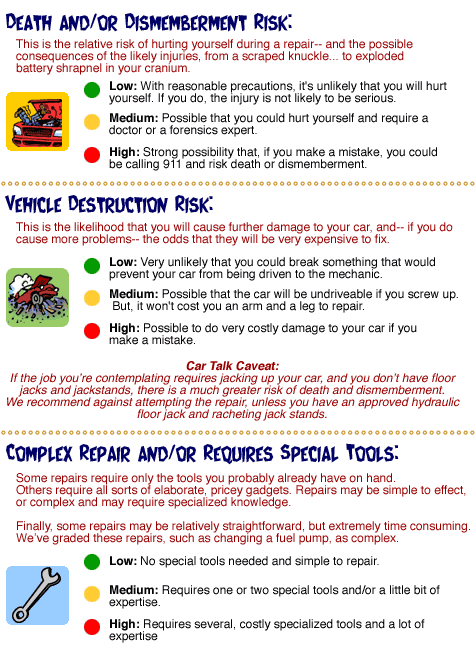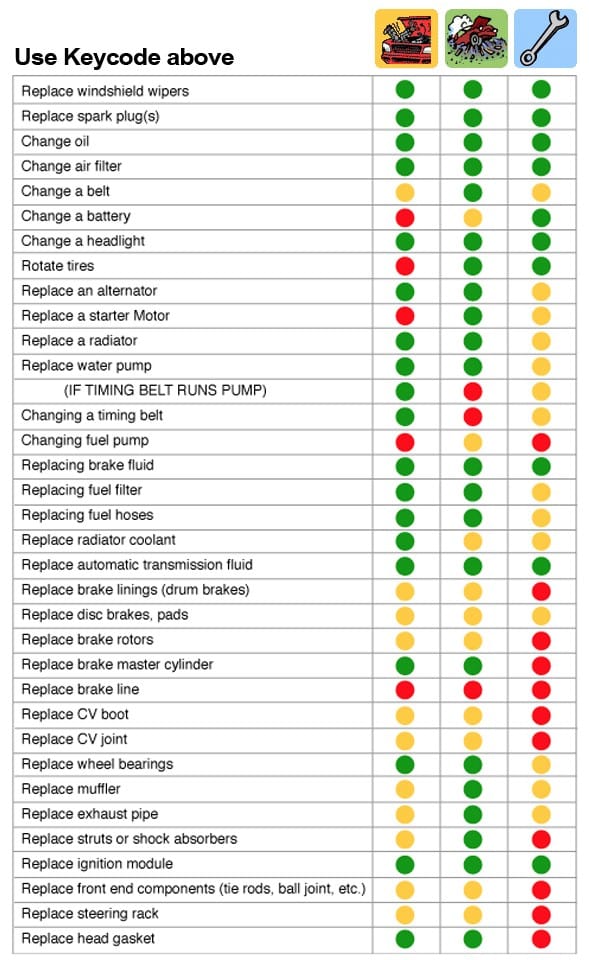If you are anything like me, basic car maintenance is not one of your favorite activities. As long as the engine starts when I hop in the car, I’m generally happy. However, by keeping up on the maintenance of your vehicle, you can prevent costly auto repairs in the future. Simple routines like checking your fluids or listening for unusual sounds can go a long way. It’s a small investment of time that pays off big in reliability and safety. Don’t wait until something is broken to pay attention to your car; some regular, and often times easy to do yourself, car upkeep can save you major headaches and a lot of mullah in the long run.
Auto repairs & care guidelines:
- Change Your Oil– Regardless of the type of car or how old your car is, every car needs to get an oil change every 3,000-4,000 miles. Pretty easy to do yourself without much risk to yourself or your car, but for about $30, your friendly neighborhood Jiffy Lube can also help you out if you’re unsure.
- Check Your Tire Pressure– Tires are often neglected, even though they play a critical role in car safety. Make sure that you check your tire pressure monthly (look on your car door panel, and it should tell you the appropriate air pressure for your tires). This can be done at any service station with an air pump (many times for free!), so don’t neglect this very doable piece of maintenance. Even when your tires are properly inflated, you still need to make sure that they are not wearing unevenly. Since tires are pretty pricy, a $20 tire rotation every 15,000 miles will ensure that you are getting the most out of every last inch of rubber that you paid for!
- When to Get A Tuneup- If you have an older car, or a car at or around 60,000 miles, you need to get your vehicle in for a general tune up. Just like you need to go to the doctor every once in a while for a checkup, your car needs to get looked at too, to make sure everything is working properly. A tune-up, costing on average around $200, will consist of changing the spark plugs, spark plug cables, oil, fuel, and air filters. Having regular tune-ups can ensure that you are not caught off guard with a dangerous car problem that could end up harming you, others, or becoming a major expense. If you are confident under the hood of a car, most of these areas can be checked at home to save the expense of taking professional auto repairs.
- Older Cars Need TLC- If your car is high mileage, 100,000 or more miles, you need to make sure that your belts and tubes are checked for cracks, breaks, or leaks. These parts work in unison with all other parts of your car, such as suspension lifts, so if they are not checked, you will have to pay much more when one does break!
Do Some Auto Repairs Yourself
Luckily, there are many areas of general vehicle maintenance that can easily be done without profession help. Projects like replacing air filters, checking your tire pressure, replacing spark plugs, changing your oil, transmission fluid, power-steering fluid, and windshield wiper fluid can all be done with a little elbow grease and some basic car knowledge.
By performing these basic projects, do-it-yourselfers can save a whopping $600 annually on car repairs!
Although you may be confident in your mechanical abilities, there are some things that you need to take your car into the shop to get fixed.
Check out this chart from CarTalk.com to decide if your next car project is something that can be done at home or not:


